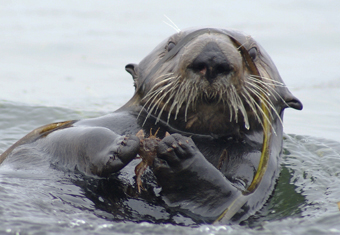

Abstract
In many systems, it has now been established that predators can indirectly control plant communities via trophic cascades and that predator re-introduction following local extinctions can promote the recovery of ecosystems and their functioning. Powerful examples include wolf regulation of forest recovery, arctic fox control of plant production and biodiversity, and sea otter impacts in promoting kelp beds. Whereas these examples of predator facilitation of ecosystems occurred in the typical habitat-types where these predators formerly ranged, recent evidence indicates that the conservation of top predators can also lead to their expansion into unexpected habitat types and result in surprising effects to those systems. My recent research has revealed that, when protected, sea otters can expand into estuaries and generate a trophic cascade that promotes the persistence and expansion of seagrass beds in the face of intense nutrient loading that would otherwise lead to algal overgrowth.
For the Smith Fellowship, I will further investigate how the recovery of sea otters in the north Pacific can potentially enhance the persistence and re-establishment of valuable, non-kelp ecosystems. Specifically, I will test if sea otter presence can: 1) facilitate the success of seagrass restoration, 2) suppress crab-generated erosion and dieback in shoreline-protecting salt marshes, and 3) enhance seagrass bed health across the north Pacific, a range that spans 1000s of kms. Finally, I will work with my conservation practitioner mentors to identify regional stakeholders and managers concerned about sea otter recovery and host an information-sharing workshop to: 1) present the results from my research, 2) facilitate discussion on the expected impacts of sea otter expansion – both positive and negative, and 3) develop conservation strategies to better prepare for the impending sea otter expansion. Sea otters serve a as model for other top predators feeding at the same trophic level (e.g., alligators, sharks and other large fish), therefore this project has the potential to inform research and conservation on the impacts of restored food webs on coastal vegetated systems across the world.
Click here to visit Brent's research website.
